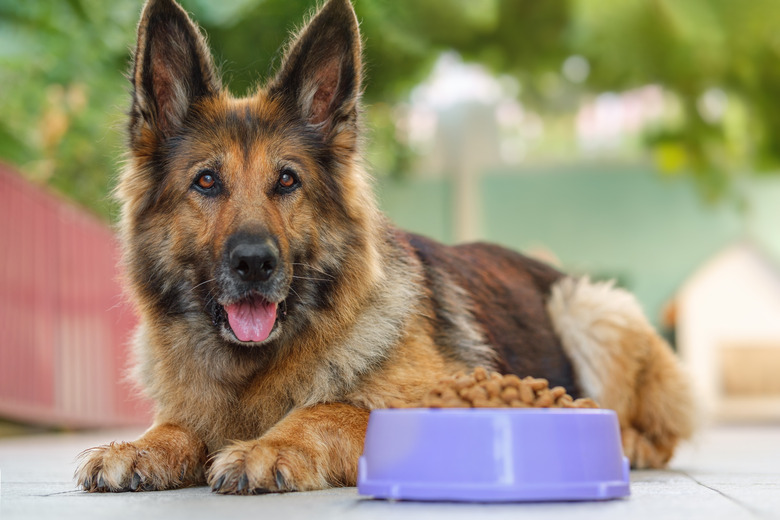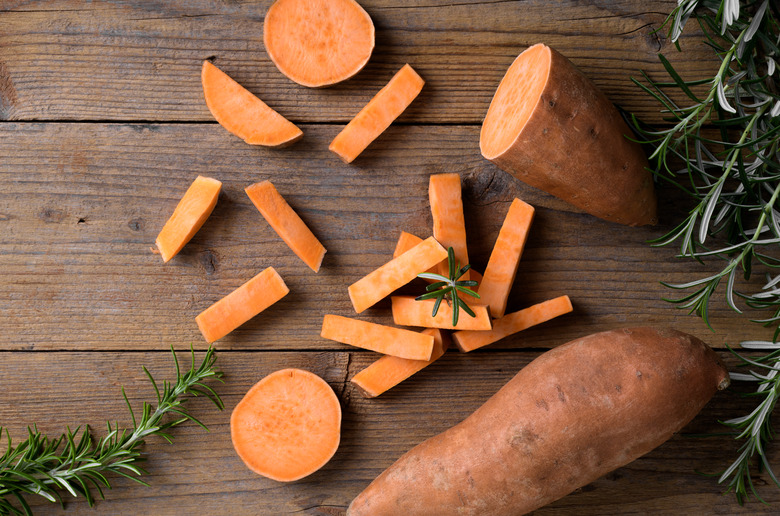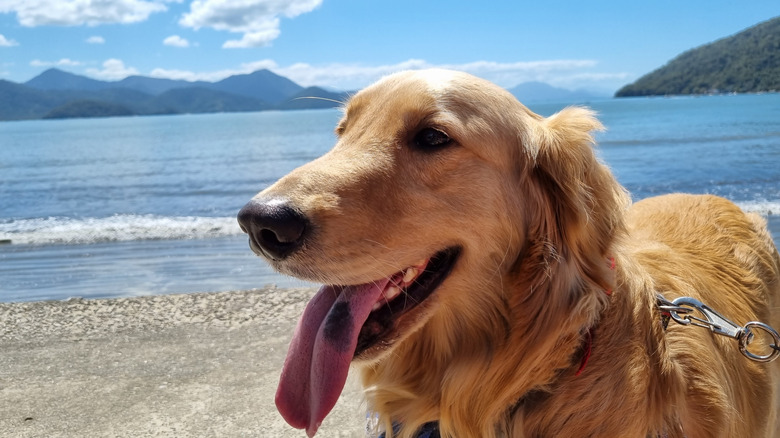Can Dogs Eat Potatoes?
People have been eating potatoes for thousands of years. It's actually the first vegetable that humans adapted from a wild plant to a domesticated one. Given our love affair with both potatoes and dogs, you might wonder if your dog can also eat them.
Are potatoes good for dogs?
Are potatoes good for dogs?
Small amounts of plain, cooked white potatoes can be offered as a nutritious treat. Potatoes are rich in antioxidants like vitamin A, vitamin B6, and vitamin C. They're also a good source of potassium, magnesium, iron, and carbohydrates.
Many dogs on a commercially available complete and balanced diet don't need supplementation of vitamins and minerals.
Forms of potatoes that dogs should never eat
Forms of potatoes that dogs should never eat
Raw potatoes contain solanine, which is a toxin that protects the plant from insects and fungi. You should never feed your pup raw potatoes because it can result in toxicity for some dogs. Solanine poisoning health problems can affect the digestive tract and nervous system.
Green skin potatoes and potatoes that have sprouted can mean an even higher level of solanine is present. Cooked and peeled potatoes have a lower level of this substance compared to raw potatoes so you can offer small amounts of plain mashed potatoes or peeled baked potatoes that contain no additional ingredients such as seasonings or butter.
Human foods like potato chips and french fries should not be given to dogs because the high fat content can cause pancreatitis and gastrointestinal upset. The seasonings may also cause your dog some stomach or intestinal irritation.
What about sweet potatoes?
What about sweet potatoes?
By now, you might be wondering about sweet potatoes, which, despite the name, are not potatoes. Though they are a root vegetable, sweet potatoes are in a separate plant family than white potatoes. Most dogs can have small amounts of sweet potatoes if they're plainly cooked and peeled.
However, sweet potatoes contain a substance called oxalates. Regular potatoes also contain oxalates but in lesser quantities. Oxalates are an acid that can combine with calcium in the body to form calcium oxalate crystals. This can result in the formation of calcium oxalate stones in the kidney(s) and/or bladder.
The breeds most affected by this type of stone are miniature schnauzers and bichon frises. The risk these two breeds have for this stone is more than 20 times higher than mixed breed dogs. Other affected breeds include Shih Tzus, Lhasa Apsos, Yorkshire terriers, dachshunds and Pomeranians.
There is also another variant of calcium oxalate stones that have a high prevalence in English bulldogs. If your dog is prone to calcium oxalate crystals and stones, they should avoid eating potatoes or sweet potatoes.
Other risks of potatoes
Other risks of potatoes
With the increased use of grain-free dog foods containing potatoes, legumes, and peas as major ingredients, there has been an increase in cases of canine dilated cardiomyopathy (DCM.) This heart condition causes a dog's heart to become enlarged and the heart muscles become weak and thin. Traditionally, most cases of DCM are due to genetics and are unrelated to nutrition. However, with the popularity of grain-free foods, breeds not usually affected (such as golden retrievers) were being diagnosed with the condition.
Affected dogs were found to have a taurine deficiency, which caused dilated cardiomyopathy. Thankfully, many of these cases were reversible because they responded to taurine supplementation and diet change. Though the traditional, genetic form is not reversible. If your dog is eating dog food with potatoes, peas, or legumes as the main ingredient, talk with your veterinarian. Ask them about checking your pet's taurine levels and exploring other dog food options.
Another risk of potatoes and sweet potatoes is they have a high level of carbohydrates. This affects blood sugar in the body. Consequently, dogs who are diabetic should not eat these vegetables. Large amounts of carbohydrates can be bad for a dog's diet. Carbohydrates can result in weight gain and obesity, especially in dogs who are not as physically active and more sedentary.
The bottom line
The bottom line
Cooked and peeled potatoes (like mashed potatoes or baked potatoes and with nothing added) can be offered as a nutritious treat to most dogs on a balanced diet. Due to higher solanine levels, raw potatoes and green potatoes should never be fed to your dog. If your dog has had calcium oxalate urinary crystals or stones, avoid feeding them even cooked potatoes or sweet potatoes because these contain oxalates. Dogs who are diabetic and dogs who are trying to lose weight should also avoid this high-carbohydrate food. It's tempting to offer human foods to our canine companions, but the decision must always be an informed and careful one.


